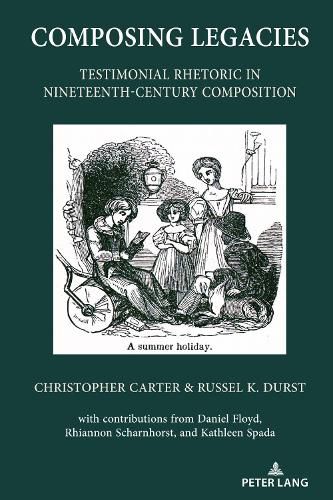Readings Newsletter
Become a Readings Member to make your shopping experience even easier.
Sign in or sign up for free!
You’re not far away from qualifying for FREE standard shipping within Australia
You’ve qualified for FREE standard shipping within Australia
The cart is loading…






This title is printed to order. This book may have been self-published. If so, we cannot guarantee the quality of the content. In the main most books will have gone through the editing process however some may not. We therefore suggest that you be aware of this before ordering this book. If in doubt check either the author or publisher’s details as we are unable to accept any returns unless they are faulty. Please contact us if you have any questions.
In 2015, Professor Emerita Lucille M. Schultz donated to the University of Cincinnati her set of composition materials gathered from fifteen libraries and collections around the country. With 350 entries ranging from 1785 to 1916, the collection includes picture books for early primary schools, grammar textbooks, student writing, and advanced rhetoric textbooks for undergraduates. The documents afford a thrilling glimpse into nineteenth-century ways of thinking and teaching, highlighting practices we would today identify as prewriting, collaborative invention, freewriting, and object-oriented pedagogy. Composing Legacies relates these pedagogies to expressions of social class, nationalism, and public engagement that run throughout the Victorian era and the Gilded Age. Early chapters show how writing and grammar handbooks aimed to reproduce social hierarchies; later ones show how textbook authors aimed to mitigate lecture-style pedagogy with attention to student backgrounds, personal interests, economic aspirations, and presumed audiences. Often, those authors demonstrated a pronounced interest in national unity, but not without exception. Little-known Confederate textbooks took the ideology of unity to be a form of Northern aggression, promoting the maintenance of state and local traditions through their classroom exercises and sample passages. Composition scholars who see the nineteenth-century as a period of skills-and-drills teaching, devoid of explicit political concern, will find surprises in the archival texts’ testimonies about national crises and civic participation. Those scholars will also find that the social turn in writing and rhetoric, however recent as a historical framework, has been underway for more than two hundred years.
$9.00 standard shipping within Australia
FREE standard shipping within Australia for orders over $100.00
Express & International shipping calculated at checkout
This title is printed to order. This book may have been self-published. If so, we cannot guarantee the quality of the content. In the main most books will have gone through the editing process however some may not. We therefore suggest that you be aware of this before ordering this book. If in doubt check either the author or publisher’s details as we are unable to accept any returns unless they are faulty. Please contact us if you have any questions.
In 2015, Professor Emerita Lucille M. Schultz donated to the University of Cincinnati her set of composition materials gathered from fifteen libraries and collections around the country. With 350 entries ranging from 1785 to 1916, the collection includes picture books for early primary schools, grammar textbooks, student writing, and advanced rhetoric textbooks for undergraduates. The documents afford a thrilling glimpse into nineteenth-century ways of thinking and teaching, highlighting practices we would today identify as prewriting, collaborative invention, freewriting, and object-oriented pedagogy. Composing Legacies relates these pedagogies to expressions of social class, nationalism, and public engagement that run throughout the Victorian era and the Gilded Age. Early chapters show how writing and grammar handbooks aimed to reproduce social hierarchies; later ones show how textbook authors aimed to mitigate lecture-style pedagogy with attention to student backgrounds, personal interests, economic aspirations, and presumed audiences. Often, those authors demonstrated a pronounced interest in national unity, but not without exception. Little-known Confederate textbooks took the ideology of unity to be a form of Northern aggression, promoting the maintenance of state and local traditions through their classroom exercises and sample passages. Composition scholars who see the nineteenth-century as a period of skills-and-drills teaching, devoid of explicit political concern, will find surprises in the archival texts’ testimonies about national crises and civic participation. Those scholars will also find that the social turn in writing and rhetoric, however recent as a historical framework, has been underway for more than two hundred years.